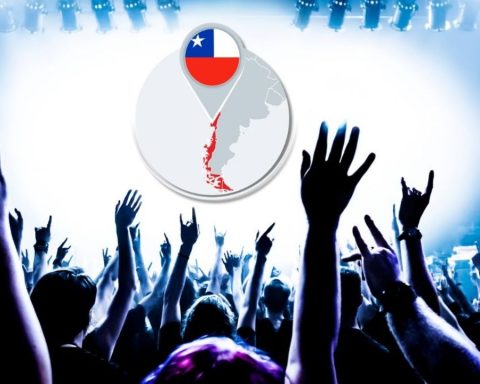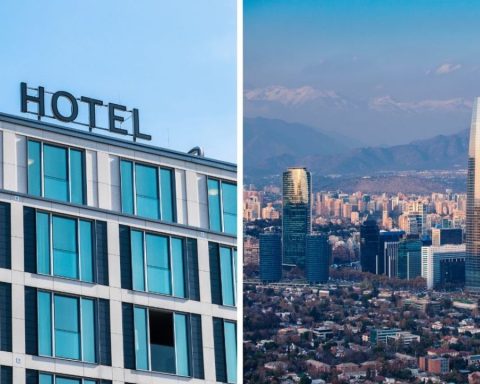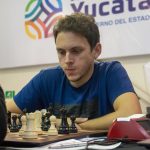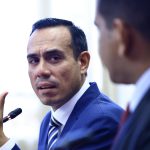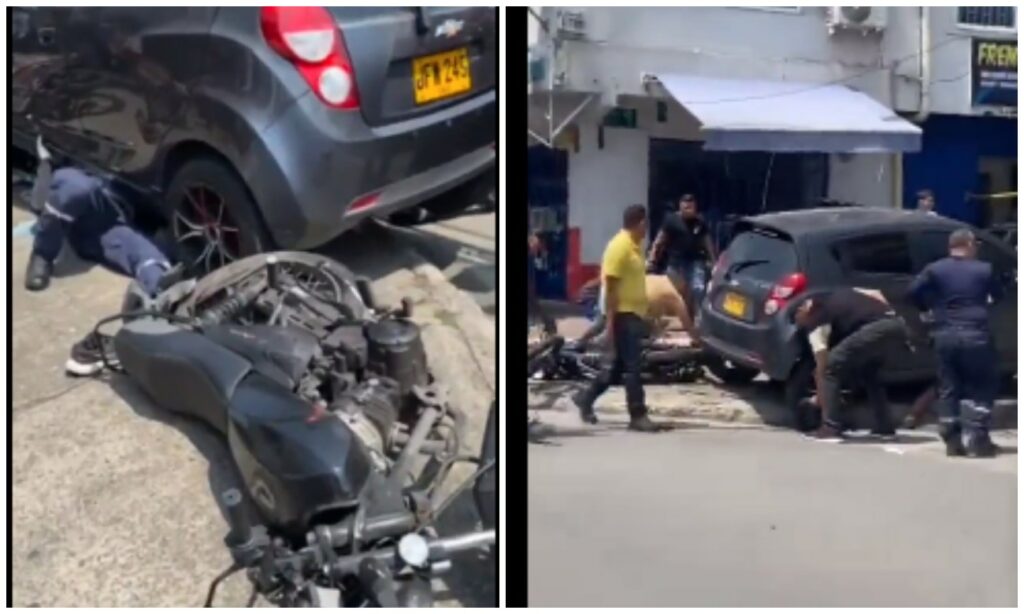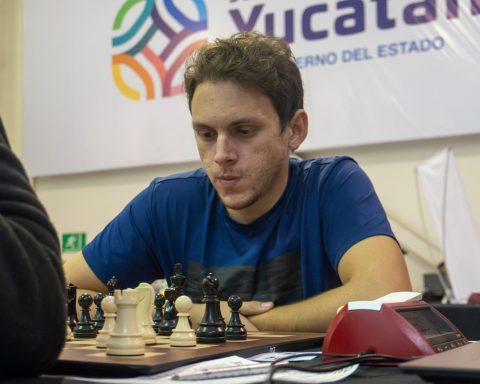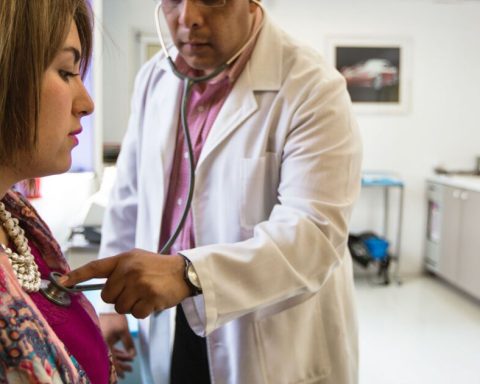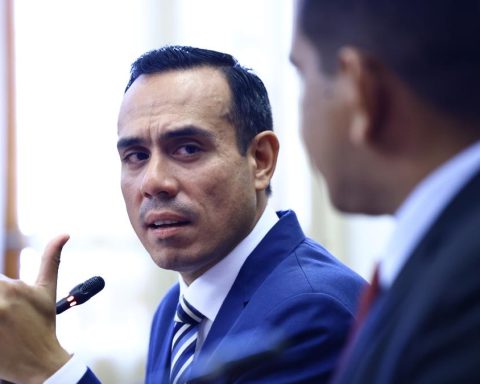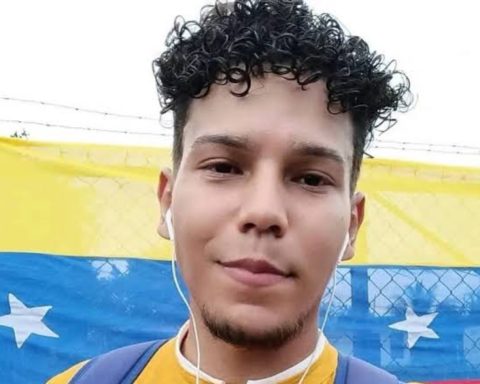Last week activities in the Chamber were suspended, and the deputies attended Congress only on Tuesdays and Wednesdays to vote on all security issues. Thus, the eyes were directed towards the processing of the Naín-Retamal Law, which was finally approved, so that the Senate is now charged with ruling -as of this Tuesday- regarding an initiative that has generated debates, given which gives presumption of justified use of the service weapon to police officers (privileged self-defense) in three scenarios: when they act in self-defense, in defense of third parties or to prevent a crime.
The concern of the United Nations (UN) High Commissioner for human rights, added to the discontent of a considerable sector of the pro-government benches, caused the government to finally choose to resign itself to its approval, leaving in the hands of the Senate – including a series indications that intend to modify the project – the future of an initiative that has the majority support of the right. The privileged legitimate defense is, probably, today the main point of conflict, which is already being discussed – first in the Security Commission and then in the Chamber – and which the ruling party hopes will be resolved as soon as possible.
In this scenario, of constant conflict and confrontation between ideological visions and party designs, actors such as the People’s Party (PDG) become unexpected protagonists, beyond the internal problems that caused the disintegration of its bench and the resignation of the majority of its deputies. With less than two years of life, the collective has become a considerable political force, being the second party with the largest number of militants in the entire country (45 thousand), after the Communist Party. And although the personal and media conflicts of its founder and former presidential candidate, Franco Parisi, could have affected in one way or another the public image of the store, they continue to bet on consolidating themselves as a serious alternative, with a focus on the next elections of constitutional councilors and, above all, in the municipal elections of 2024.
In this regard, in dialogue with The counter, The still deputy of the People’s Party (PDG) bench, Rubén Oyarzo, referred to his party’s position in the face of the contingency due to the security crisis, but he also reflected on the political projections of his store, assuring that if Although it recognizes Franco Parisi as a natural leader, today they are also committed to empowering new leaders. The parliamentarian said that the decision of Chile Vamos to get off the Security Table “was perceived by the people as a terrible sign”, and although he assures that his party is not from the right, he does not say that he has any problem talking or building bridges with no political sector. “We are willing to talk with everyone, from Republicans to communists,” Oyarzo said.
-What is the position of the PDG regarding the Naín-Retamal Law and the security agenda that is being discussed in Congress?
-We see that the issue of security, if it were not for the unfortunate tragedy that happened to Sergeant Rita Olivares, would have progressed slowly. We see that there are important issues that concern us in the People’s Party (PDG), such as the representative Rivas was insisting on the defense of the victims, which is an edge where no progress is being made either. We have presented initiatives, such as the school safety project, which was presented in April of last year, and which we are still waiting for the Government to make urgent. There is also a project that increases and aggravates the penalties for crimes committed in shopping centers, and the Government has not given it urgency either, and it has not even been processed in the Public Safety Commission of the Chamber.
So, in reality we are being very reactive to the contingency: today security is the main priority of citizens. In the district, in Maipú, Cerrillos, Pudahuel or Estacional Central, people tell me that they need more police officers and greater security, but unfortunately these tragedies have to occur so that as a State – in its concept of State, without blaming it only to the current government – let’s react.
– What do you think of the indications that the Government presented for the processing of said project in the Senate, and the pressure from sectors such as Apruebo Dignidad to desist from some of its elements, such as privileged legitimate defense?
-Obviously, there are ideological blinders that do not allow progress on security issues, and unfortunately when ideology interferes, the loser is the country and the citizens. Because I insist, unfortunately already in March we already had two deaths of policemen, in an institution that was mistreated by these same political sectors that today, due to ideology, do not want to advance in security matters.
-Meanwhile, and considering that three months ago -in the midst of a security crisis-, Chile Vamos withdrew from the Security Roundtable convened by the Ministry of the Interior. How do you see the approach of the right in the face of this crisis?
-First, I cannot speak for the right because I do not belong to the right. We are a party of the center, close to the people, and we are not the opposition nor are we the ruling party. So, in that sense, I cannot speak for the right. Now, I insist that we have presented projects on the subject of security since April 2022, which to date has not yet been given urgency. Eight months passed and only 1 bill advanced, which is that of critical infrastructure; and it was not until December 2022 that certain projects began to be given urgency, but because the crisis was the worst that the country was experiencing after 30 years. So, I insist that more than putting obstacles, here we must get to work and have the will to collaborate and dialogue to reach agreements. We did not get off the government security table, we stayed because we firmly believe that there should be an effective, efficient and modern defense for victims. We believe that the prosecutor’s offices have to modernize, and that the police must be given all the powers and tools so that they can do their job in the best possible way.
-But, do you think that it was a bad sign on the part of Chile Vamos to withdraw from said instance at that particular moment? What do you think of those sectors that seek to capitalize in political terms, the fight against crime, drug trafficking and organized crime?
-I think that the fact that Chile Vamos got off the security table, was perceived by people as a terrible sign, because here we have to reach agreements, seeking to collaborate and dialogue, and not subtract ourselves to come up with solutions on issues of safety for people. In fact, no political sector can claim to take security home or refuse to discuss security issues.
Security is neither left nor right. What is clear is that the Government gives a bad signal with the pardons, and that also affects its management. In this regard, we as PDG strongly criticize the pardon, but nevertheless we do not get off the table, because the country’s priorities are precisely security, the economy, illegal migration, among others. And we cannot withdraw from that, because we must offer concrete solutions today, and that is the problem in Chile, that if the political sectors withdraw to debate and legislate – which is our job -, unfortunately the country does not advance.
– Do you think that the next elections for constitutional councillors, the PDG is playing a large part of its political weight? Is the constituent process the ideal instance to grow as a party? Do you notice a lack of interest in the process on the part of the public?
-The first thing is to make it clear that we are a real alternative for governance, and we are also the second largest political party at the national level, with more than 45,000 members throughout Chile. For these elections, we have candidates in all regions of the country, except the Valparaíso Region, and I believe that we are a real political alternative for the people. Now then, and without discussing that this constituent process is important, for the people the truth is that I think it has not been so relevant, what is reflected in the surveys is that the public is not very informed, and it has not generated too much expectation in this new process. So, for us the most important thing in terms of public elections will be the municipal ones, and that is where we are going to play our cards 100%. Now, if you ask me if this is important, I think it is important, and the PDG is going to do well in this process, I am sure of that because it is perceived on the street. But nevertheless, I think that here we need to get a little closer to the date for people to get more excited.
-What is this positivism based on in the face of this constituent process? What is its advantage, in relation to the traditional ruling and opposition parties?
-I am sure that the PDG will do well, because we are connected with the people, we are close to the citizenry- something that other parties do not have-, and that we also use the tool of digital democracy, which for us as a political party it is very important, considering that we are the only party that uses this tool, which we will use again in this process.
-A short time ago the PDG was spoken of as “Franco Parisi’s party”, is it still like that? How relevant is the role of the economist within the community?
-Although Franco Parisi is our natural leader, and that is indisputable, in the party we are also seeing many regional, local and national leadership within the party. There are many leaders that we want to highlight and that we have to make known, because we are a new party (we have only been here for 1 year), but we have many leaders at the national level who are important.
– Finally, why do you think there are many who syndicate the PDG as a right-wing party? Do you think it is possible to build a serious political project, beyond the enthusiasm generated from your appearance in the political sphere? Who would they not be willing to ally with?
-I have been treated from “poor face” to communist, which I think somehow illustrates that situation. But I think that beyond that, we are a center party that seeks to connect with the citizenry through instances such as digital democracy. Because being in tune with the people is the essence of the party, and we do not classify ourselves as either the left or the right, because we believe in a State for the common good, and not with ideology and its political parties
For its part, the alliances will be seen in due course. For example, for this constituent process we did not go with any alliance, but we spoke with all the political parties, so that will be seen when appropriate, and we are not closed to anything because we talked with everyone, from the left to the right, the entire political spectrum . We do not have a political bias to speak, either with Republicans or with Communists


